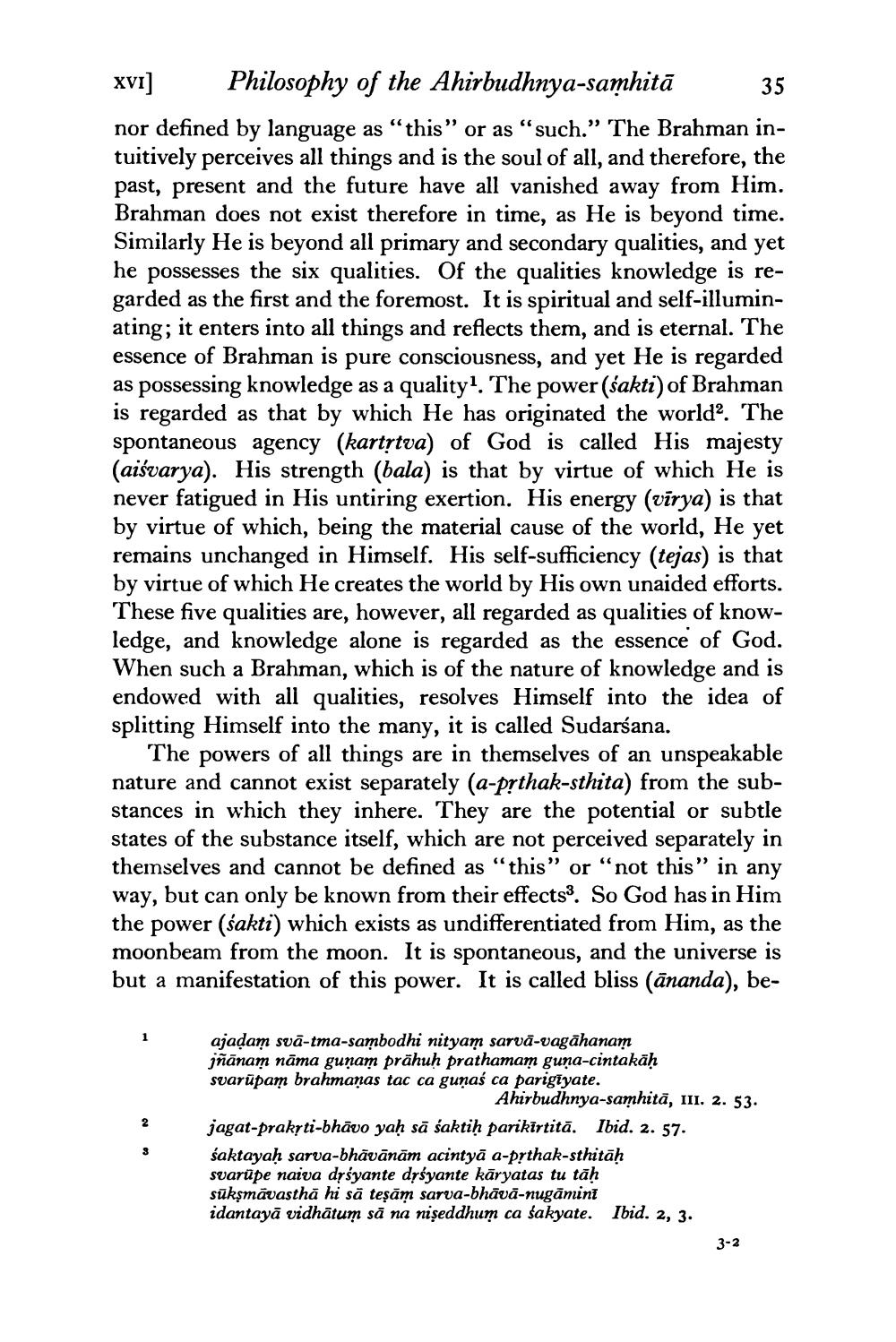________________
Xv1] Philosophy of the Ahirbudhnya-samhitā 35 nor defined by language as “this" or as "such.” The Brahman intuitively perceives all things and is the soul of all, and therefore, the past, present and the future have all vanished away from Him. Brahman does not exist therefore in time, as He is beyond time. Similarly He is beyond all primary and secondary qualities, and yet he possesses the six qualities. Of the qualities knowledge is regarded as the first and the foremost. It is spiritual and self-illuminating; it enters into all things and reflects them, and is eternal. The essence of Brahman is pure consciousness, and yet He is regarded as possessing knowledge as a quality1. The power (sakti) of Brahman is regarded as that by which He has originated the world. The spontaneous agency (kartytva) of God is called His majesty (aišvarya). His strength (bala) is that by virtue of which He is never fatigued in His untiring exertion. His energy (vīrya) is that by virtue of which, being the material cause of the world, He yet remains unchanged in Himself. His self-sufficiency (tejas) is that by virtue of which He creates the world by His own unaided efforts. These five qualities are, however, all regarded as qualities of knowledge, and knowledge alone is regarded as the essence of God. When such a Brahman, which is of the nature of knowledge and is endowed with all qualities, resolves Himself into the idea of splitting Himself into the many, it is called Sudarśana.
The powers of all things are in themselves of an unspeakable nature and cannot exist separately (a-p?thak-sthita) from the substances in which they inhere. They are the potential or subtle states of the substance itself, which are not perceived separately in themselves and cannot be defined as "this" or "not this" in any way, but can only be known from their effects. So God has in Him the power (sakti) which exists as undifferentiated from Him, as the moonbeam from the moon. It is spontaneous, and the universe is but a manifestation of this power. It is called bliss (ānanda), be
ajadam svā-tma-sambodhi nityam sarva-vagāhanam jñānam nāma gunam prähuh prathamam guna-cintakäh svarūpam brahmanas tac ca gunaś ca parigīyate.
Ahirbudhnya-samhitā, III. 2. 53. jagat-prakti-bhāvo yaḥ sā saktih parikirtitā. Ibid. 2. 57. saktayaḥ sarva-bhāvānām acintyā a-prthak-sthitāḥ svarüpe naiva drśyante drśyante kāryatas tu tāḥ sūksmāvasthā hi să teşām sarva-bhāvā-nugāmint idantayā vidhātum să na niședdhum ca sakyate. Ibid. 2, 3.
3-2




